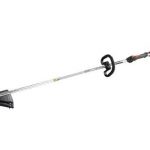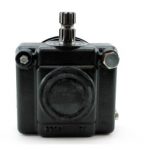 With many types of fuel blends and additives available, are you using the correct ones in your lawn equipment? Using the wrong types of fuel or the wrong fuel additives and blends can severely damage or incapacitate your lawn equipment, rendering it useful. Here are some things to pay attention to when filling up your gas can at the station, buying additives at the store, or mixing and fueling your equipment at home.
With many types of fuel blends and additives available, are you using the correct ones in your lawn equipment? Using the wrong types of fuel or the wrong fuel additives and blends can severely damage or incapacitate your lawn equipment, rendering it useful. Here are some things to pay attention to when filling up your gas can at the station, buying additives at the store, or mixing and fueling your equipment at home.
Fuel Additives
Fuel additives can be used to increase the performance of your small equipment engine, or to negate some of the effects of ethanol on your small engine. However, the overuse of additives can damage your small engine in the long run. Engines are not intended to deal with the chemicals contained in these additives in large amounts, and overuse can cause malfunctions due to higher burn temperatures, corrosion, or chemical build-up.
Improper Blending
This is especially important when it comes to two-stroke engines that require a combination of oil and fuel to properly lubricate the crank case. If the blend is too far off, the extra oil can cause ignition problems or the lack of oil can cause poor lubrication.
Ethanol Fuel
With the increase in availability of high-ethanol fuels, this is the most important thing to keep an eye on. None of the small engines on the market have been developed to run on fuel with a higher ethanol content than 10%, which will be labelled as E10 at the gas stations. You will see blends labelled as E15, E30, E50 and E85, all of which have the possibility of causing major damage. The higher ethanol content can corrode the metals and rubbers inside the engines, causing them to break down quickly. Additionally, high-ethanol fuel blends burn faster, meaning that you will need to refill the gas cans and tanks more often.
Ethanol fuels can be compensated for through fuel additives, but currently, those additives are only effective on E10 gasoline. E10 itself can be damaging to your small engine if it is left uncycled in your gas tank for too long. The ethanol in the blend will draw in water, and the mixture will then separate inside the tank, with water sitting on the top of the rank and causing rust. When the water gets pulled into the carburetor, it plays havoc on the innards and will lead to an expensive engine rebuild or possibly even the need to replace the engine.
So take pay attention to what goes in your tank, because the wrong gallon of fuel may mean an expensive repair bill. This is one case for driving a few extra miles to get the right gasoline is worth it in the long run.






